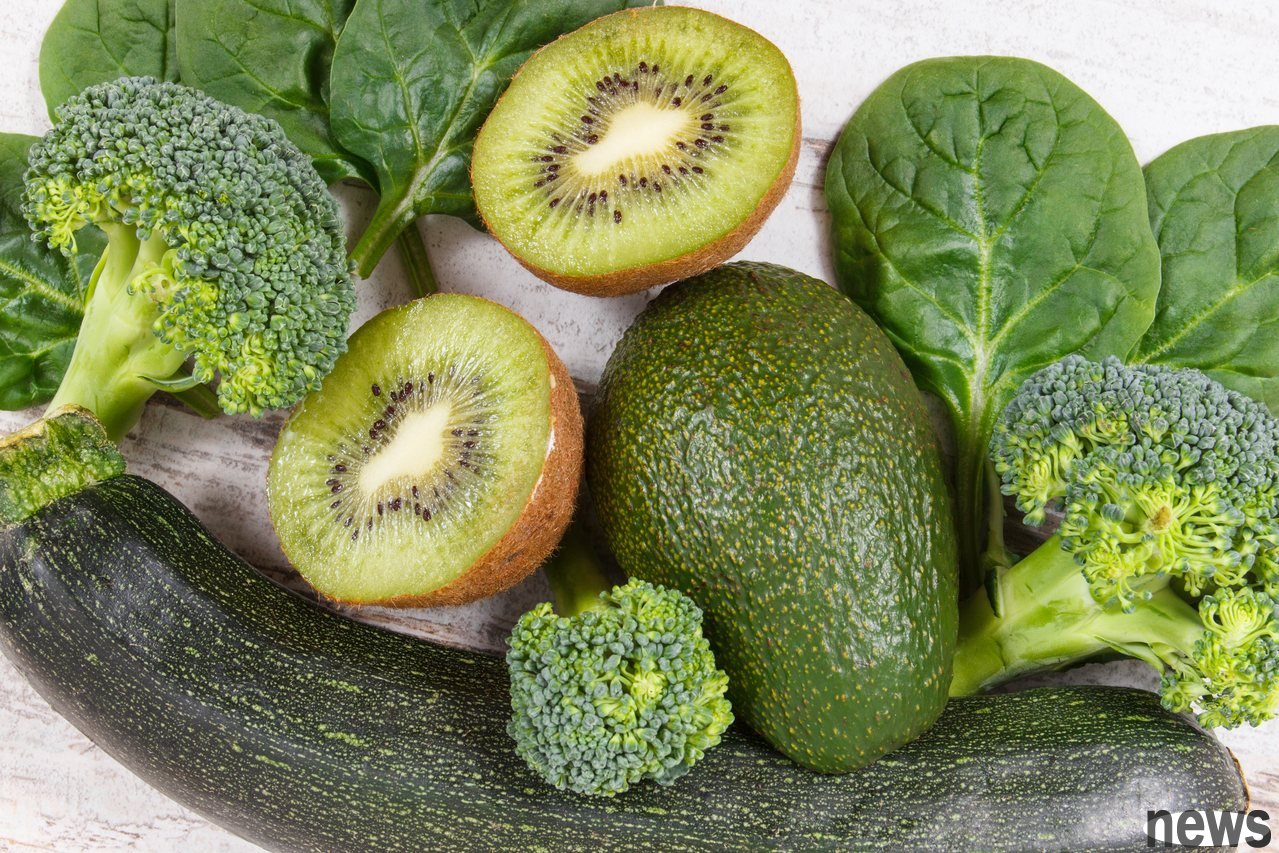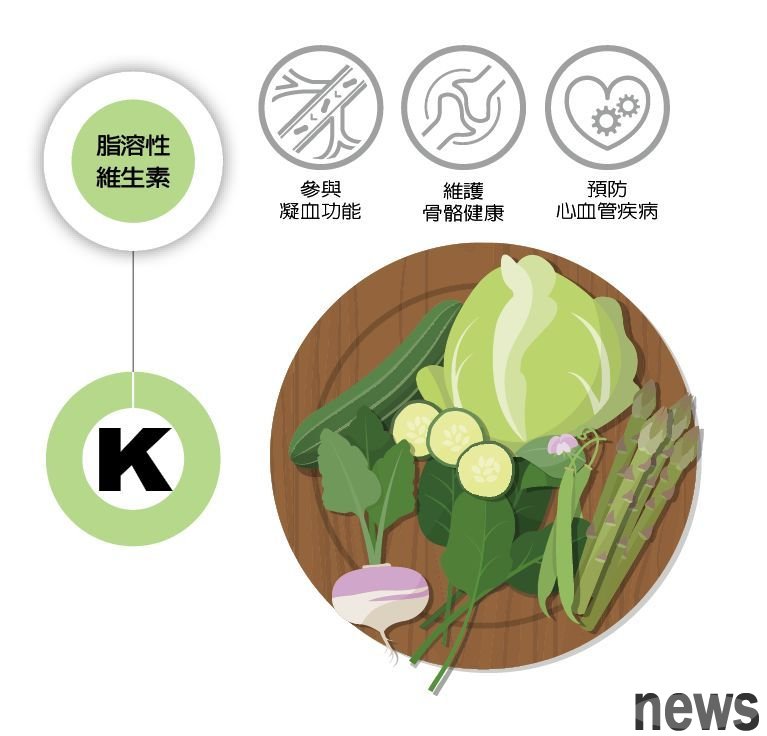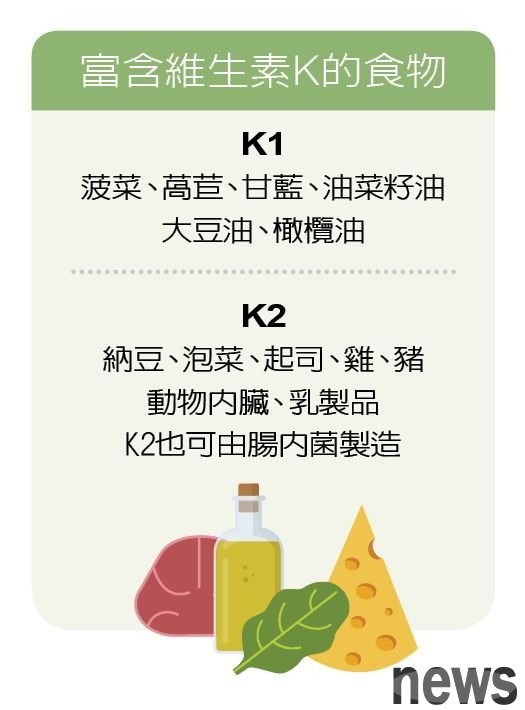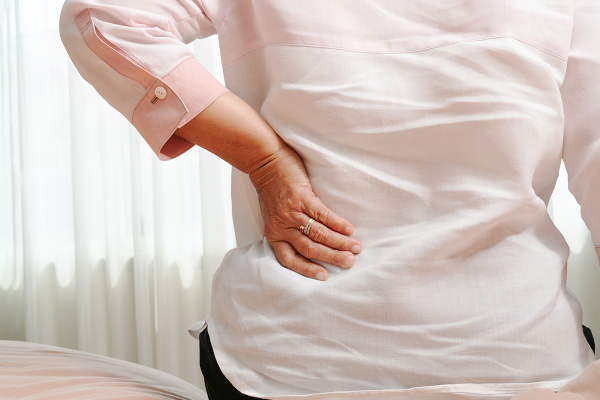What are the effects of vitamin K? Which foods contain vitamin K? What can t you eat with?

Vitamin A, B, C, D, E are essential vitamins for people who are familiar with, but fewer people pay attention to vitamin K and nutritionists have fewer opportunities to teach, mainly because vitamin K is easy to be taken from food, and even bacteria in the kidneys can be made by themselves. Only newborns may be lacking. Most people are not likely to have insufficient vitamin K if they have a balanced diet.
What are the importance of vitamin K?. Related to coagulation function
. Maintaining bone health
Chen Weiliang, a nutritionist at Changhua Christian Hospital, said that vitamin K has two effects, one is coagulation, vitamin K is an important nutrient for coagulation function. The coagulation in the blood needs to be combined through prothrombin, coagulation-related proteins and calcifications. Further to coagulation, sufficient vitamin K is required. Vitamin K can also protect bone health, and bones also need vitamin K to form bone cells.
{9999}{9999}Yang Yawen, director of the Nutrition Department of Changhua Xiuche Hospital, also said that most people know that vitamin D is important for bone health, but vitamin K is also very important and can help bone calcification. For those with long-term supplements, they can also supplement them with vitamin K food. Vitamin K has a coagulation function, so it lacks the time to coagulate, severe and even major bleeding.

. Freshman
. Yang Yawen, a mature person, said that as long as people eat normally, they will not be deficient, and they do not need additional supplements. The daily vitamin K required for adult men is 120 micrograms (& mu; g), and women need 90 micrograms per day.
Vitamin K deficiency groups are mainly newborns and mature people. The vitamin K required by newborns every day is about 2 micrograms. The main source of newborn food is breast milk. If the vitamin K is lacking in breast milk, it will affect newborns.
Chen Wei-ling said that new students will lack vitamin K mainly because they eat less, the stock in their bodies is already smaller, and the colonies in the kidneys have not yet been established. Sometimes doctors evaluate that new students who are inpatients will also inject vitamin K with static injections.
What are the food sources of vitamin K?. K1→ plants such as green vegetables
. K2→ Microorganisms such as fermented food

Chen Weiling said that vitamin K is fat-soluble, like vitamin A and vitamin E. The vitamin K is divided into K1, K2, and K3 according to the source. K1 is derived from plants, such as green vegetables; K2 is derived from microorganisms, such as fermented foods such as nachos, kimchi, cheese, etc.; K3 is chemically synthesized, but K3 is highly toxic during research and is rarely seen on the market now.
Yang Yawen said that vegetables rich in K1 are spinach, borer, sweet blue, vegetable oil, rapeseed oil, soybean oil, olive oil, etc. K2 is not only fermented food, but also meat types including chicken, pig, animal intestine, liver and dairy products. The special thing is that K2 can also be made from intravenous bacteria.
How to eat every day to get enough vitamin K. Chen Weiling pointed out that every 100 grams of high-alkali vegetables in Ye vegetables contains 108 micrograms of vitamin K. Generally, shops have more than 100 grams of green vegetables. This means that eating one or two plates a day can achieve enough intake. Spinach has 493 micrograms of vitamin K per 100 grams, and mustard greens has a higher content of vitamin K, with 592 micrograms per 100 grams. Although fruits and meat products also have vitamin K, they are relatively less. For example, 41 micrograms of vitamin K per 100 grams of miracle.
Who needs vitamin K supplement?. Hospitalized patients with abnormal coagulation
. Antibiotics affect kidney bacteria
Chen Weiliang said that vitamin K is oil-soluble. If it is like pancreatic cancer, it will cause poor absorption of oil in the body, which will affect the absorption of vitamin K. You can pay more attention to the patient's physical condition, but even so, there are few drugs to supplement vitamin K.
Although vitamin K supplementation is rarely recommended for ordinary clinics, some hospitalized patients use anticoagulant drugs to monitor abnormal coagulation function, and vitamin K supplementation is still appropriate. Some patients also have more antibiotics during the hospitalization period. If the injection is too long, there will be no good bacteria in the kidneys. If there is less self-generated K2, oral supplementation may be required.
Can eating too much vitamin K food cause blood clots?. Oral administration will not cause excessive coagulation. Injection should pay attention to side effects such as allergies and bushing tube dysfunction.
Vitamin K supplementation is sufficient for oral administration and injection. People may have questions. If you eat too many foods rich in vitamin K, will it cause thrombosis because of too good blood clotting? Chen Weiliang said that relevant research points out that even if you take 45 mg a day, that is, 45,000 micrograms, there will be no thrombosis. Therefore, taking too much vitamin K orally will not cause any problem. However, vitamin K injections directly enter the blood. If overdose is used, side effects will occur, such as serious consequences such as allergies, gastrointestinal aches, heart stops, etc., so the pharmacists will be more serious.
What drugs should be avoided with vitamin K?. Take anticoagulant drugs and do not eat large amounts of foods rich in vitamin K.
When people take anticoagulant drugs, they will not recommend not eating foods rich in vitamin K at all, but do not eat in large quantities. It is best to have a quantitative effect. Otherwise, anticoagulant drugs and vitamin K have an antagonistic effect, and the effect of the medicine will be affected.
Yang Yawen also said that vitamin K is responsible for activating the coagulation protein in the liver and blood, helping to maintain normal coagulation effects of the blood. The liver and kidney function is poor. If vitamin K is supplemented more, be careful of side effects; additional supplements for pregnant women and breastfeeding women also need to be discussed with doctors..
Responsible editor: Gu Zihuan















